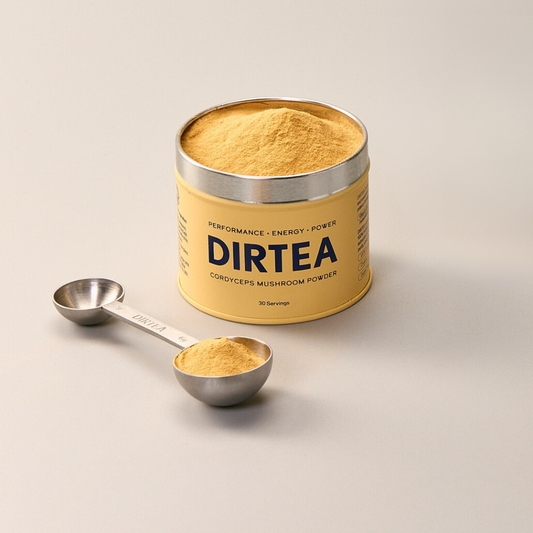How Do You Speed Up Your Metabolism?

Share
How Do You Speed Up Your Metabolism?
Many people suffer from obesity.
According to gov.uk, 63.8% of adults aged 18+ in England were estimated to be overweight or living with obesity from 2021 to 2022.(1) This was a 63.3% increase from 2020 to 2021.
One thing that can help tackle this problem is managing our metabolisms. Metabolism is the chemical process that occurs in our body's cells to convert food and drink into energy, and managing it can help with weight control and overall health.
The question is how do you speed up your metabolism, or at least keep your metabolism healthy?
While genetics partly determine your metabolic rate, there are several lifestyle changes you can make to help speed up your metabolism. Incorporating them into your daily routine can promote a healthier metabolism and support weight management.
In this post, we’re going to look at some of these habits.
HABIT #1: ADOPT A HEALTHY LIFESTYLE RATHER THAN A QUICK-CRASH DIET
Many of us want a quick fix.
We want to be in a particular shape or gain muscle as quickly as possible. This can result in overexertion at the gym and the adoption of crash diets.
Although heavy gym work and crash diets might quicken your metabolism in the short run, the long term effects can be damaging.
Switching your mindset to the long game is key. By ditching unsustainable practices and shifting to healthy habits, you provide your body with the care it needs to live a healthy, strong life.
So how do you do this?
When thinking about how you speed up your metabolism and adopt healthy ways of living, being consistent with wholesome habits is essential.
However, the prospect of incorporating these steps into your life might seem akin to scaling Mount Everest.
The solution is to start slow. Gradually add a few steps or new habits at a time to make things manageable. Add reminders on your calendar to help you track your progress if you’re super busy too!
HABIT #2: PRIORITISE PROTEIN AND EAT REGULARLY
Protein-rich foods require more energy to digest and metabolise than fats or carbohydrates, which can temporarily boost your metabolic rate. They may also keep you fuller for longer. (2)
So include lean protein sources like poultry, fish, lean beef, beans, and tofu in your meals.
Maintaining a regular eating schedule is also an effective way to speed up your metabolism. Conversely, skipping meals or prolonged periods without food may lead you to binge much more later on when you do eat.
Aim to eat healthy, balanced meals consistently throughout the day to keep your metabolic fires burning.
HABIT #3: STAY HYDRATED
An article in Medical News Today says the body cannot properly metabolise stored fat or carbohydrates without water. Females need approximately 9 cups of water daily, and males need around 13 cups. (3)
A study also found that drinking 500 ml of water increased metabolic rate by 30%. The increase occurred within 10 minutes and reached a maximum after 30-40 minutes. (4)
The takeaway here?
When thinking about how you speed up your metabolism, drinking more water could help.
HABIT #4: 6-9 HOURS OF SLEEP A NIGHT
Sleep is crucial for a healthy body and mind.
A 2010 study by Sharma and Kavuru explains how sleep is intricately connected to various hormonal and metabolic processes in the body and is essential in maintaining metabolic homeostasis.(5)
Taking Reishi in the evenings may also be a great way to calm your nervous system and catch a great night's rest.(6) This is all led by a compound within Reishi called triterpenoid, which shows promising prospects.
HABIT #5: STAY ACTIVE, WEIGHT TRAIN, AND TAKE CORDYCEPS
A study by Knab et al found a 45-minute bout of vigorous exercise can speed up your metabolism for up to 14 hours.(7)
So if you want to maintain a healthy metabolism, consider the stairs instead of the elevator and try going for walks on your lunch breaks.
People underestimate the power of taking a walk. It doesn’t require as much energy as a run or weight training, and it can increase your cardiovascular health, promote immunity, and strengthen bones and muscles.
These small changes can have a cumulative effect and quicken your metabolism.
Weight training is also an effective form of speeding your metabolism. Simply put, when you weight train, you build muscles, and muscles burn calories even when you're not active.
So the more muscle you have, the more calories your body uses to keep those muscles working, contributing to a higher metabolism.
As discussed in a study, resistance training has many other benefits (if conducted safely and correctly).(8) Some benefits include injury prevention, enhanced cardiovascular health, and improved bone density.
Muscle also burns roughly six calories per pound a day at rest. That’s three times as many calories as a pound of fat. In other words, when considering how you speed up your metabolism, muscle is the way to go.
Many athletes take Cordyceps — especially pre-workout. That’s because Cordyceps contains a compound called Cordycepin which is said to upregulate energy levels and improve exercise performance.
Increased and better performance whilst working out can speed up your metabolism due to better results from your workout.
So how do you speed up your metabolism?
There are no miracle solutions that will make this happen overnight (at least not sustainably).
However, the following can help you build a healthy metabolism for the long run:
- Accept healthy eating as a lifestyle choice rather than a quick-fix diet
- Prioritise protein and eat regular meals
- Stay hydrated
- Aim for 6-9 hours of sleep each night
- Stay active, try weight training, and consider Cordyceps
By adopting these healthy habits, you can support a more efficient metabolism and achieve your weight management goals.
Remember: Consistency is the key to boosting your metabolism. Make these healthy habits a part of your daily routine, and you’ll see a positive impact on your health and weight.
References
- Gov.uk (2023). Obesity Profile: Short Statistical Commentary May 2023. Available at: https://www.gov.uk/government/statistics/obesity-profile-update-may-2023/obesity-profile-short-statistical-commentary-may-2023 (Accessed: 8 November 2023) (1)
- Halton, T.L., and Hu F.B. (2004) ‘The Effects of High Protein Diets on Thermogenesis, Satiety and Weight Loss: A Critical Review’. J Am Coll Nutr. 23(5). pp.373-85. doi: 10.1080/07315724.2004.10719381. (2)
- Medical News Today (2023). ‘Does drinking water help you lose weight? Benefits and amount’. Available at: https://www.medicalnewstoday.com/articles/322296. (Accessed: 10 November 2023) (3)
- Boschmann, M., Steiniger, J., Hille, U., Tank, J., Adams, F., Sharma, AM., Klaus, S., Luft, FC., and Jordan, J. (2003) ‘Water-Induced Thermogenesis’. J Clin Endocrinol Metab. 88 (12). pp,6015-9. doi: 10.1210/jc.2003-030780. (4)
- Sharma, S., and Kavuru, M.(2010) ‘Sleep and Metabolism: An Overview’. Int J Endocrinol.:270832. doi: 10.1155/2010/270832 (5)
- Qiu, Y., Mao, Z.J., Ruan, Y.P., and Zhang, X. (2021)‘Exploration of the Anti-Insomnia Mechanism of Ganoderma by Central-Peripheral Multi-Level Interaction Network Analysis’. BMC Microbiol. 21(1), pp.296. doi: 10.1186/s12866-021-02361-5. (6)
- Knab, A. et al (2011), ‘A 45-minute vigorous exercise bout increases metabolic rate for 14 hours’. Medicine and science in sports and exercise. doi: 10.1249/MSS.0b013e3182118891 (7)
- Westcott, W.L. (2012) ‘Resistance Training is Medicine: Effects Of Strength Training on Health’. Curr Sports Med Rep. 11(4). Pp.209-16. doi: 10.1249/JSR.0b013e31825dabb8. (8)









